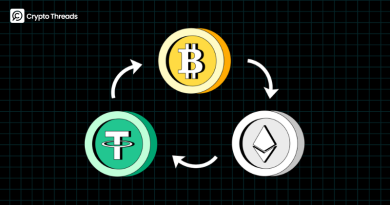Japan Launches Its First Yen-Backed Stablecoin JPYC
- JPYC becomes Japan’s first yen-backed stablecoin, launched by Tokyo-based fintech firm JPYC Inc.
- The token is fully backed 1:1 by bank deposits and government bonds, maintaining parity with the Japanese yen.
- Seven companies have already shown interest in integrating JPYC into their services.
- JPYC also launched JPYC EX, a regulated issuance and redemption platform compliant with Japan’s anti-money laundering laws.
- The company aims to reach ¥10 trillion in circulation within three years.
- Major institutions like Monex Group and Japan’s top banks (MUFG, SMBC, Mizuho) are preparing to launch their own yen-pegged stablecoins.
- Japan’s Financial Services Agency (FSA) is reportedly reviewing regulations to let banks hold crypto assets like Bitcoin.
In a landmark move for Japan’s digital finance landscape, Tokyo-based fintech firm JPYC Inc. has officially launched the country’s first yen-backed stablecoin, marking a historic moment for the Japanese digital economy.
The new stablecoin, JPYC, went live on Monday and is designed to maintain a 1:1 peg to the Japanese yen, backed by bank deposits and government bonds — ensuring stability and regulatory compliance.
At a Tokyo press conference, JPYC President Noriyoshi Okabe hailed the development as a “major milestone in the history of Japanese currency.” He also revealed that seven companies have already expressed interest in integrating JPYC into their products and services, signaling early momentum in adoption.
JPYC EX: A Fully Regulated Stablecoin Platform
Alongside the launch of the stablecoin, JPYC introduced JPYC EX, a dedicated issuance and redemption platform that adheres to Japan’s Act on Prevention of Transfer of Criminal Proceeds.
Users can deposit yen via bank transfer to receive JPYC in a registered wallet, and similarly, redeem JPYC for yen through verified withdrawal accounts.
This framework ensures that JPYC operates within Japan’s strict regulatory standards, addressing key government concerns around anti-money laundering and transaction transparency.
Japan’s Ambitious Stablecoin Vision
JPYC has ambitious plans to reach an issuance balance of ¥10 trillion (approx. $67 billion) within the next three years, positioning itself as a potential cornerstone of Japan’s digital payments ecosystem.

The company envisions JPYC as more than a digital asset — it aims to “create a new social infrastructure through stablecoins”, paving the way for greater efficiency in domestic and cross-border transactions.
Japan’s stablecoin market is heating up quickly. Monex Group, a leading Tokyo-based financial services firm, has already announced plans for its own yen-pegged stablecoin.
Additionally, Japan’s “big three” banks — Mitsubishi UFJ Financial Group (MUFG), Sumitomo Mitsui Banking Corp (SMBC), and Mizuho Bank — are developing a joint yen stablecoin via MUFG’s Progmat platform.
This surge of interest underscores Japan’s broader commitment to modernizing its financial system and catching up with global stablecoin leaders like USDT and USDC, which currently dominate the $308 billion global stablecoin market.
Regulatory Winds Shifting in Japan
In another major development, Japan’s Financial Services Agency (FSA) may soon allow domestic banks to acquire and hold cryptocurrencies, including Bitcoin (BTC), for investment purposes.
Such a regulatory shift could accelerate institutional participation and strengthen Japan’s foothold in the digital asset space.
Japan’s JPYC launch signals the beginning of a new chapter for yen-backed digital finance. With regulatory clarity, institutional interest, and ambitious growth targets, JPYC is poised to become a key player in Asia’s stablecoin economy.
As competition intensifies among traditional banks and fintech firms, Japan is setting the stage to become a major global hub for regulated stablecoin innovation.



